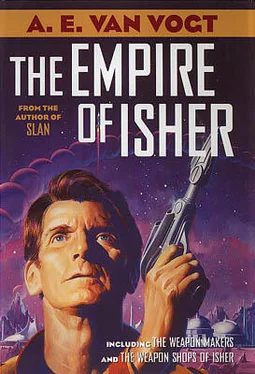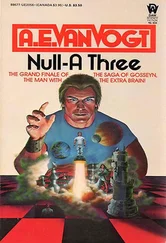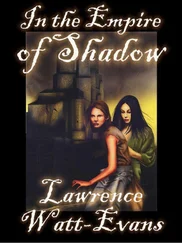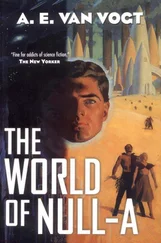To Cayle there came a tremendous excitement. Thought of the girl faded. He clambered aboard feverishly. He did not think of Lucy again until the plane was hurtling along over the evergreen land far below. He leaned back in his comfortable chair then, and wondered; What kind of a person was she, this girl of the weapon shop? Where did she live? What was her life as a member of an almost rebel organization?…There was a man in a chair about ten feet along the aisle. Cayle suppressed an impulse to ask him all the questions that bubbled inside him. Other people might not realize as clearly as he himself did that, though he had lived all his life in Glay, he wasn’t really village. He’d better not risk a rebuff.
A man laughed. A woman said, “But, darling, are you sure we can afford a tour of the planets?” They passed along the aisle, Cayle assessing the casualness with which they were taking the trip.
He felt enormously self-conscious at first, but he also gradually grew casual. He read the news on his chair ’stat. With idle glances he watched the scenery speeding by below, adjusting his chair scope for enlarged vision. He felt quite at home by the time the three men seated themselves opposite him and began to play cards.
It was a small game for tiny stakes. And, throughout two of the men were never addressed by name. The third one was called “Seal.” Unusual name, it seemed to Cayle. And the man was as special as his name. He looked about thirty. He had eyes as yellow as a cat’s. His hair was wavy, boyish in its unruliness. His face was sallow, though not unhealthylooking. Jeweled ornaments glittered from each lapel of his coat. Multiple rings flashed colored fire from his fingers. When he spoke it was with slow assurance. And it was he who finally turned to Cayle and said:
“Noticed you watching us. Care to join us?”
Cayle had been intent, automatically accepting Seal as a professional gambler, but not quite decided about the others. The question was, which one was the sucker?
“Make the game more interesting,” Seal suggested.
Cayle was suddenly pale. He realized now that these three were a team. And he was their selected victim. Instinctively, he glanced around to see how many people were observing his shame. To his relief, nobody at all was looking. The man who had been sitting ten feet away was not in sight. A stout, well-dressed woman paused at the entrance of the section but turned away. Slowly the color trickled back into his face. So they thought they had found someone who would be an easy mark, did they. He stood up, smiling.
“Don’t mind if I do,” he said.
He sat down in the vacant chair across from the yellow-eyed man. The deal fell to Cayle. In quick succession and honestly, he dealt himself a king down and two kings up. He played the hand to the limit and, even with the low stakes, eventually raked in about four credits in coins.
He won three out of the next eight games, which was below average for him. He was a callidetic, with temporary emphasis on automatic skill at cards, though he had never heard the word. Once, five years before when he was seventeen, while playing with four other boys for credit twentieths, he won nineteen out of twenty games of showdown. Thereafter, his gambling luck, which might have rescued him from the village, was so great that no one in Glay would play with him.
In spite of his winning streak now, he felt no sense of superiority. Seal dominated the game. There was a commanding air about him, an impression of abnormal strength, not physical. Cayle began to be fascinated.
“I hope you won’t be offended,” he said finally, “but you’re a type of person who interests me.”
The yellow eyes studied him thoughtfully, but Seal said nothing.
“Been around a lot, I suppose?” said Cayle.
He was dissatisfied with the question. It was not what he wanted. It sounded less than mature. Seal, mere gambler though he was, towered above such a naive approach. But he replied this time. “A bit,” he said non-committally.
His companion seemed to find that amusing. They both guffawed. Cayle flushed, but there was a will in him to know things. “To the planets?” he asked.
No answer. Seal carefully studied the cards that were down, then raised a credit-fortieth. Cayle struggled against the feeling that he was making a fool of himself. Then, “We all hear things,” he said apologetically, “and it’s some times hard to know what’s true and what isn’t. Are any of the planets worth going to?”
The yellow eyes studied him now with amusement. “Lis ten, fella,” said Seal impressively, “don’t go near them. Earth is the heaven of this system and if anybody tells you that wonderful Venus is beckoning, tell ’em to go to hell—that’s Venus. Hell, I mean. Endless sandstorms. And one day, when I was in Venusburg, the temperature rose to eight-four Centigrade.” He finished. “They don’t tell you things like that in the ads, do they?”
Cayle agreed hastily that they didn’t. He was taken aback by the volubility of the reply. It sounded boastful like—he couldn’t decide. But the man was abruptly less interesting. He had one more question.
“Are you married?” he asked.
Seal laughed. “Married! Listen, my friend, I get mar ried every place I go. Not legally, mind you.” He laughed again, significantly. “I see I’m giving you ideas.”
Cayle said, “You don’t have to get ideas like that from other people.”
He spoke automatically. He hadn’t expected such a rev elation of character. No doubt Seal was a man of courage. But the glamour was gone from him. Cayle recognized that it was his village morality, his mother’s ethics, that were assessing the other. But he couldn’t help it. For years he had had this conflict between his mother’s credos and his instinctive awareness that the world outside could not be compressed into the mores that encompassed village life.
Seal was speaking again, heartily. “This boy is really go ing to be somebody in everglorious Isher, eh, boys? And I’m not over-stating either.” He broke off. “Where do you get all those good cards?”
Cayle had won again. He raked in the pot, and hesi tated. He had won forty-five credits, and knew he had better quit before he caused irritation. “I’m afraid I’ll have to stop,” he said. “I’ve some things to do. It’s been a pleas—”
He faltered, breathless. A tiny, glittering gun peered at him over the edge of the table. The yellow-eyed man said in a monotone, “So you think it’s time to quit, eh?” His head did not turn, but his voice reached out directly at his companions. “He thinks it’s time to quit, boys. Shall we let him?” It must have been a rhetorical question, for the henchmen merely grimaced.
“Personally,” the leader went on, “I’m all in favor of quitting. Now, let me see,” he purred. “According to the transparency his wallet is in his upper right hand breast pocket and there are some fifty-credit notes in an envelope pinned into his shirt pocket. And then, of course, there’s the money he won from us in his trouser pocket.”
He leaned forward and his strange eyes were wide open and ironic. “So you thought we were gamblers who were going to take you, somehow. No, my friend, we don’t work that way. Our system is much simpler. If you refused to hand over, or tried to attract somebody’s attention, I’d fire this energy gun straight into your heart. It works on such a narrow beam that no one would even notice the tiny hole in your clothing. You’d continue to sit right there, looking a little sleepy perhaps, but who would wonder about that on this big ship, with all its busy, self-centered people?” His voice hardened. “Hand it over! Quick! I’m not fooling. I’ll give you ten seconds.”
Читать дальше











